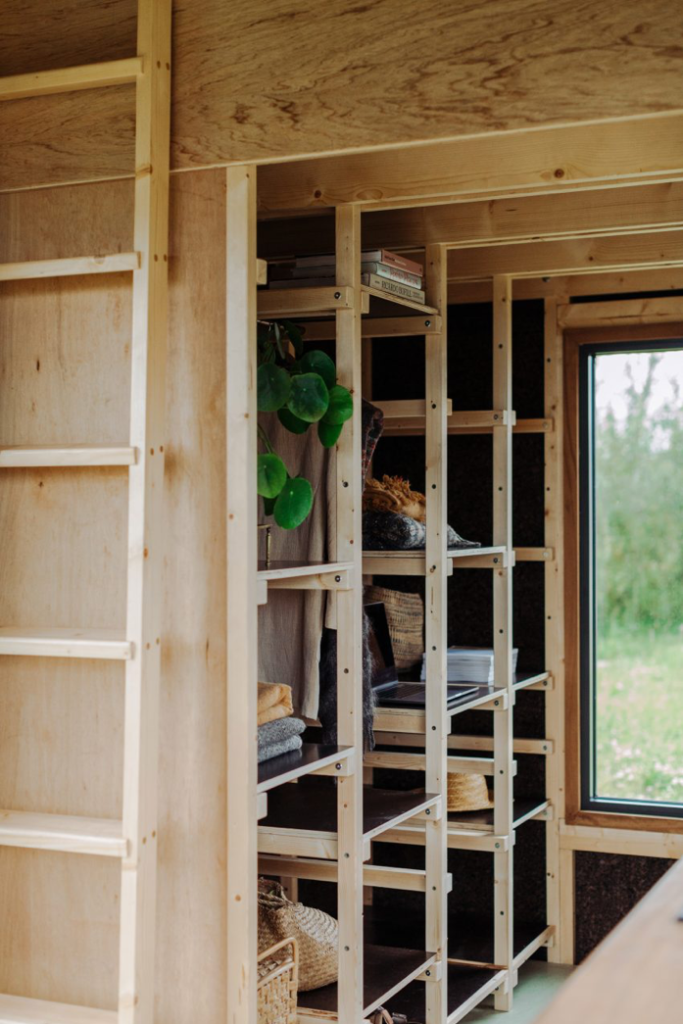Comparable to sizeable caravans, the homes are made from natural materials such as corrugated hemp cladding panels, cork for insulation, and sustainably sourced rubber for linoleum floors.
Tigín is the Gaelic word for ‘cottage’ or ‘small house’ and pricing starts at about a quarter of the price of a typical house deposit today: €55,000. For this price, buyers will own a two-floor Tigín Home fit with a kitchenette, composting toilet, shower, storage area/workspace and upstairs loft bedroom.
Designed in house by Common Knowledge, buyers have the option of purchasing 20 square metre homes that have already been constructed, or – if they’re feeling handy – can attend a workshop to build one themselves.
Relocation will also be a breeze thanks to lightweight hemp panels which ensure the Tigíns are entirely mobile and eco-friendly. To achieve this, hemp plant fibres are mixed with sugar-based resin produced from agricultural waste.

The hope is that Tigín Tiny Homes will offer support to millions of people who are becoming affected by the housing crisis, or who have struggled to fulfil the dream of purchasing their own home.
For those looking for open, airy spaces to call home, the idea of living in an oversized caravan might sound like a claustrophobic nightmare. But not all humans are the same, are we?
In the age of sustainable awareness, many are erring towards a minimalist way of life. Donating clothes we don’t wear anymore, buying and selling second-hand, and upcycling or repairing rather than throwing away have become everyday practices.
The proof is in the pudding. Common Knowledge says classes on constructing Tigín Homes have been attended by over 200 people and, as a result, four completed homes are already up for sale.

The team at Common Knowledge hope to provide additional resources for anyone wanting to scale the size of their Tigín Home up or down.
In addition, they hope to expand the current selection of sustainable materials – cork, hemp, and rubber – so that buyers and builders can customise their eco-friendly homes accordingly.
Being a social enterprise, Common Knowledge has said that all proceeds from Tigín Homes sales will be put towards hosting future educational workshops.
It’s super encouraging to see options such as these become available for homeownership, especially during a time where the news is oversaturated with headlines about mortgage rates.
I can definitely appreciate the design, but as someone who’s lived in my fair share of tiny homes, I think I’ll be giving this one a miss for the time being. For now, just call me Generation Rent.























